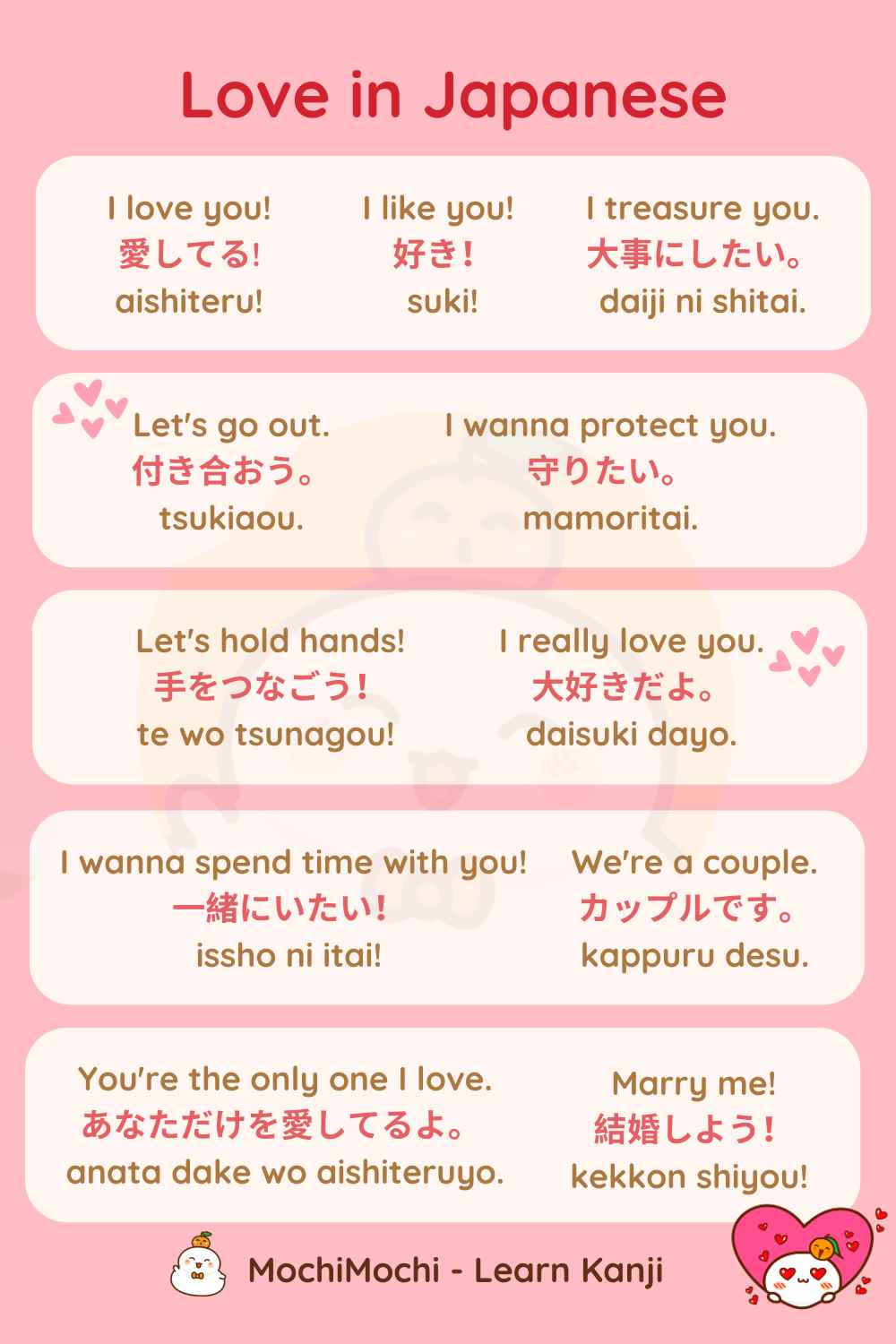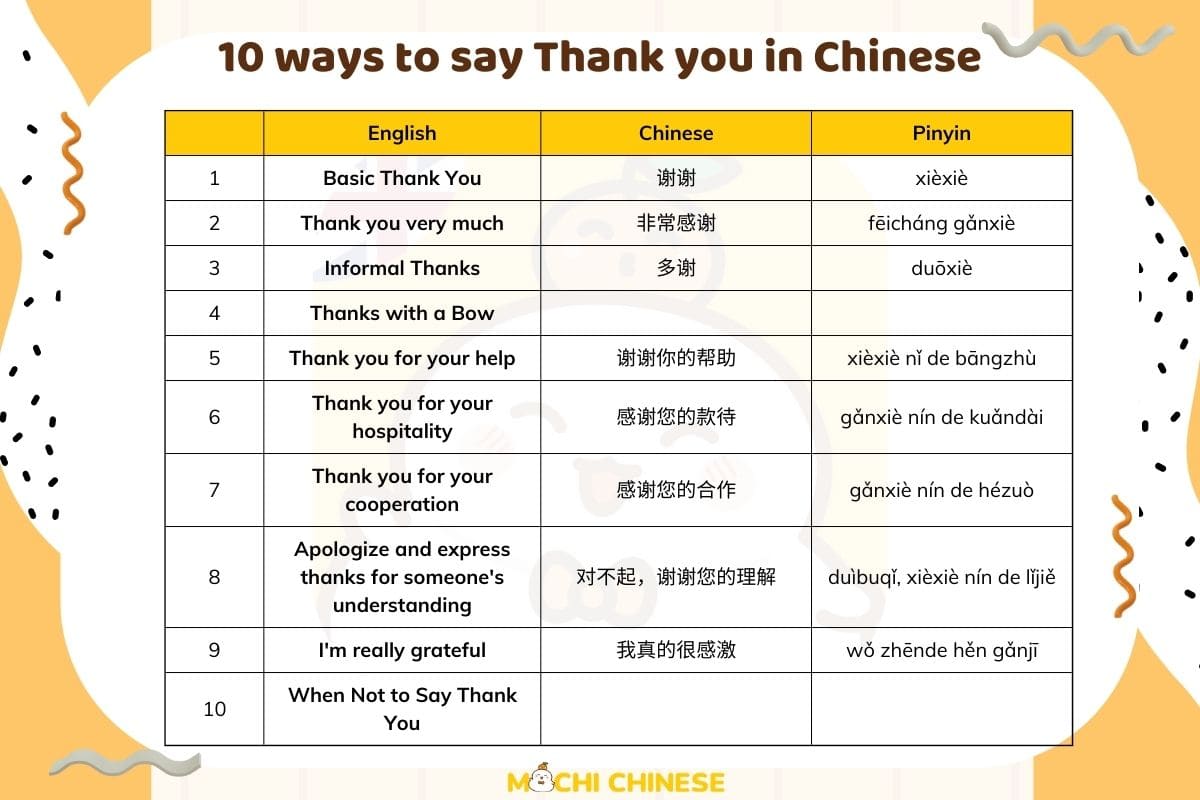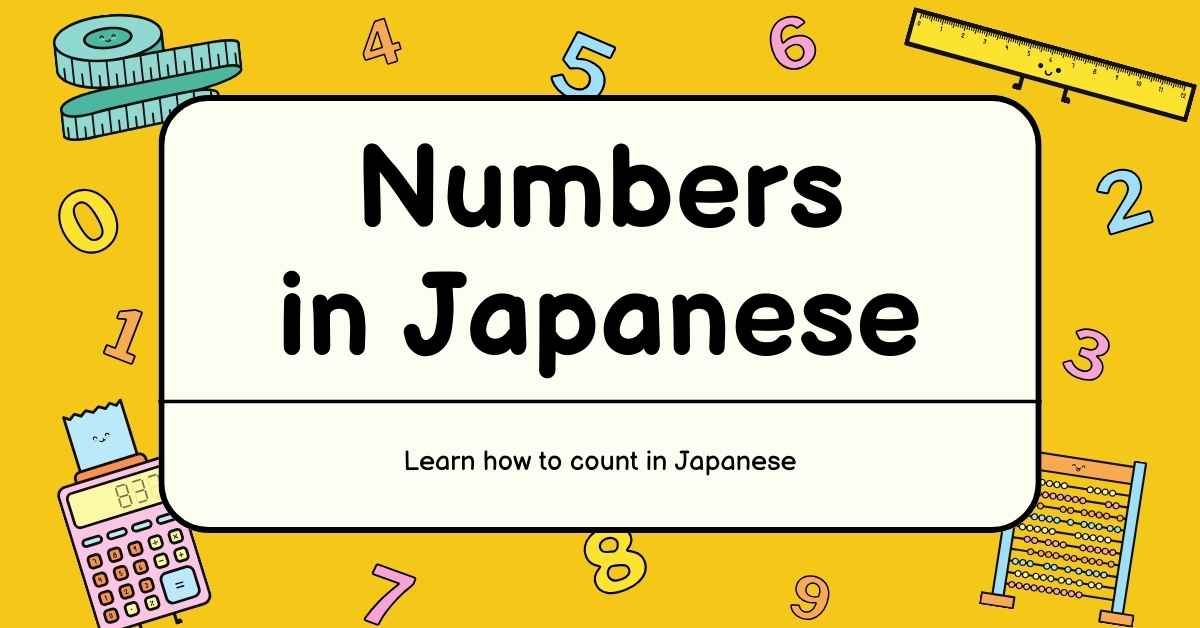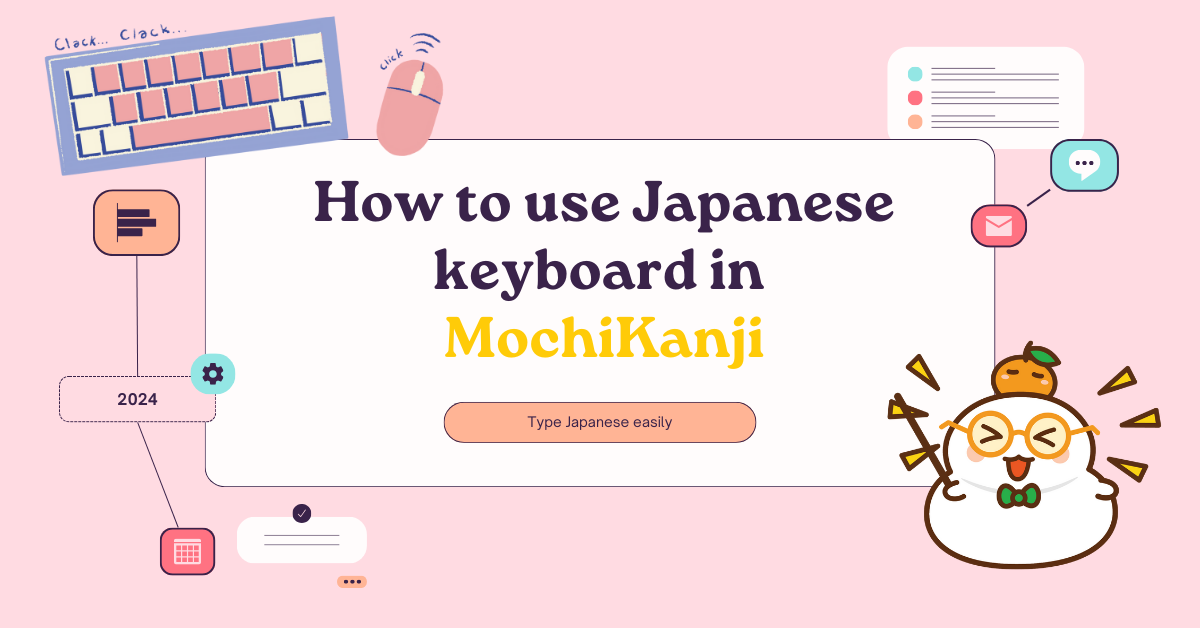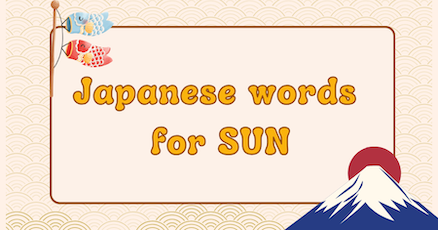Navigating romantic expressions in Japanese can seem complex due to the language’s nuances and cultural context. Here, we’ll explore a variety of ways to express sentiments like “I love you,” “I like you,” and more. We’ll also delve into the art of the Japanese confession, ensuring your romantic declarations are both culturally aware and heartfelt.
- “I love you” in Japanese
- “I like you” in Japanese
- Asking someone out in Japanese
- Marriage Proposal in Japanese
- The Art of Confession in Japan (告白, Kokuhaku)
- Learn and practice how to confess in Japanese
- FAQs

Saying “I Love You” in Japanese
Expressing love in Japanese can range from casual to intensely serious, depending on the relationship and the situation:
- 愛してる (Aishiteru) – This is a very strong, emotive, and somewhat dramatic way to say “I love you.” It’s often reserved for serious relationships and isn’t commonly used in everyday conversation.
- 愛しています (Aishite imasu) – This is the formal version of 愛してる, suitable in serious declarations of love, particularly in public or formal situations.
- 大好きだ (Daisuki da) – Less intense than 愛してる, this phrase means “I really like you” or “I love you” in a lighter, more casual sense. It’s suitable for both romantic and platonic love.
- 君のことが好きだ (Kimi no koto ga suki da) – This is a full version of the previous sentence, translates to “I like you” or “I have feelings for you” and is a common way to confess romantic interest.
Expressing “I like you” in Japanese
- 好きだよ (Suki dayo) – This informal and common expression means “I like you,” suitable for all kinds of relationships.
- あなたが好きです (Anata ga suki desu) – A more polite version of expressing liking, often used in a context where respect is important.
To enhance your Japanese learning experience and master these phrases effortlessly, try using MochiKanji. With its effective flashcards and review system, you’ll quickly build confidence in using these expressions and more.
Asking someone out
- 付き合ってください (Tsukiatte kudasai) – This direct request means “Please go out with me” and is typically used to ask someone to be your boyfriend/ girlfriend. This phrase is more common among young ages and you can see them when watching anime.
- デートしようよ (Deeto shiyou yo) – An informal way to suggest going on a date, implying a casual and relaxed invitation.
Proposing marriage
- 結婚してくれる? (Kekkon shite kureru?) – This is one of a casual way to ask “will you marry me”.
- 結婚してください (Kekkon shite kudasai) – This is the straightforward way to say “Will you marry me?” in Japanese. It’s more like a request than a question or an invitation. The sentence coils be translated into “ Please marry me”.
- 一緒に老後を過ごしませんか?(Issho ni rougo wo sugoshimasen ka?) – This means “Would you spend your old age with me?” It’s a more poetic and less direct way of proposing marriage, reflecting a deep commitment.
The art of confession in Japan (告白, Kokuhaku)
Confessing feelings in Japan, known as “kokuhaku”, is a significant cultural practice that usually precedes the start of a romantic relationship. It’s considered a crucial step in defining romantic relationships clearly. Here’s how to confess without being awkward:
- Plan Your Moment: Confessions are typically done in private, ensuring both parties can express their feelings without public pressure.
- Be Direct But Sensitive: While it’s important to be clear, it’s equally crucial to be considerate of the other person’s feelings. Use softer expressions like 君のことが好きだ or 大好きだ to convey your feelings gently.
- Respect Their Response: Give the other person time to think and respond. Kokuhaku can be a lot to process, and rushing for an answer can seem disrespectful.
Learn and practice how to confess in Japanese
If you’re keen on learning how to say “I love you” in Japanese and other romantic expressions effectively. Here are some enjoyable and educational ways to enhance your understanding and usage of these phrases:
Watch more movies and anime
Japanese movies and anime are not just entertaining; they’re also rich sources for hearing everyday language and romantic expressions in context. You can understand the nuances of how phrases like “I love you” in different situations – whether it’s a dramatic confession or a subtle declaration of feelings – by watching these. Pay close attention to character interactions and the situations in which they use romantic phrases, as this will give you a sense of appropriateness and timing.
Read books and novels
Diving into Japanese books and novels provides a deeper look into the language’s structure and expressions. In addition, reading allows you to see how characters express love and affection in writing, which can sometimes differ from spoken language. Moreover, this practice helps build your reading comprehension and expands your vocabulary, including various expressions of love and affection.
Learn with MochiKanji App
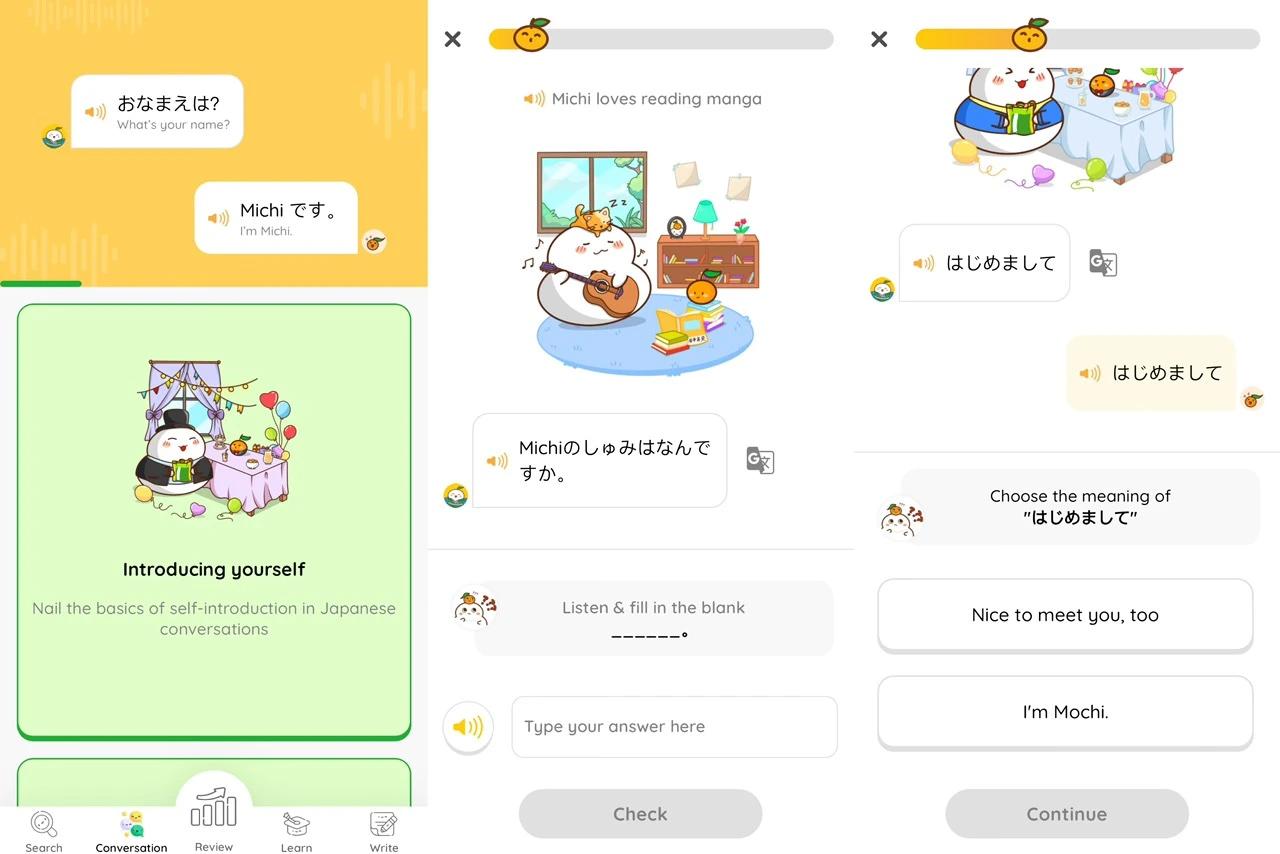
The MochiKanji app offers structured lessons on Japanese characters, vocabulary and phrases. Using an app like MochiKanji allows for interactive learning, where you can hear pronunciation and practice speaking Japanese conversation. MochiKanji helps you build up your vocabulary and use them in many situations in daily life, beside expressing your love!
Understanding these nuances not only helps you communicate your feelings appropriately but also deepens your understanding of Japanese cultural. Whether you’re expressing a casual interest or a deep commitment, knowing these phrases and the context in which to use them will enhance your interactions in meaningful ways.
FAQs
What is the proper way to say “I love you” in Japanese?
The phrase “I love you” can be translated to Japanese as both “aishiteru” (愛してる) and “daisuki” (大好き), but they are used in different contexts.
Is it daisuki or aishiteru?
“Aishiteru” is a stronger and more formal expression of love, typically used in romantic relationships and serious contexts. “Daisuki,” on the other hand, is more commonly used in casual situations and can express strong affection or liking, not necessarily romantic love. It can be used with family, friends, and significant others.
Is Daisuki the same as I love you?
While “daisuki” (大好き) translates to “I really like you” or “I like you a lot,” it is not as intense as “aishiteru” (愛してる). “Daisuki” can convey deep affection but is generally used in less serious contexts compared to “aishiteru,” which implies a deeper, more profound romantic love.
What does daisukidayo mean?
“Daisukidayo” (大好きだよ) means “I really like you” or “I really love you.” The addition of “dayo” adds a sense of emphasis or reassurance, making it a warm that can be used with someone you care about deeply.

